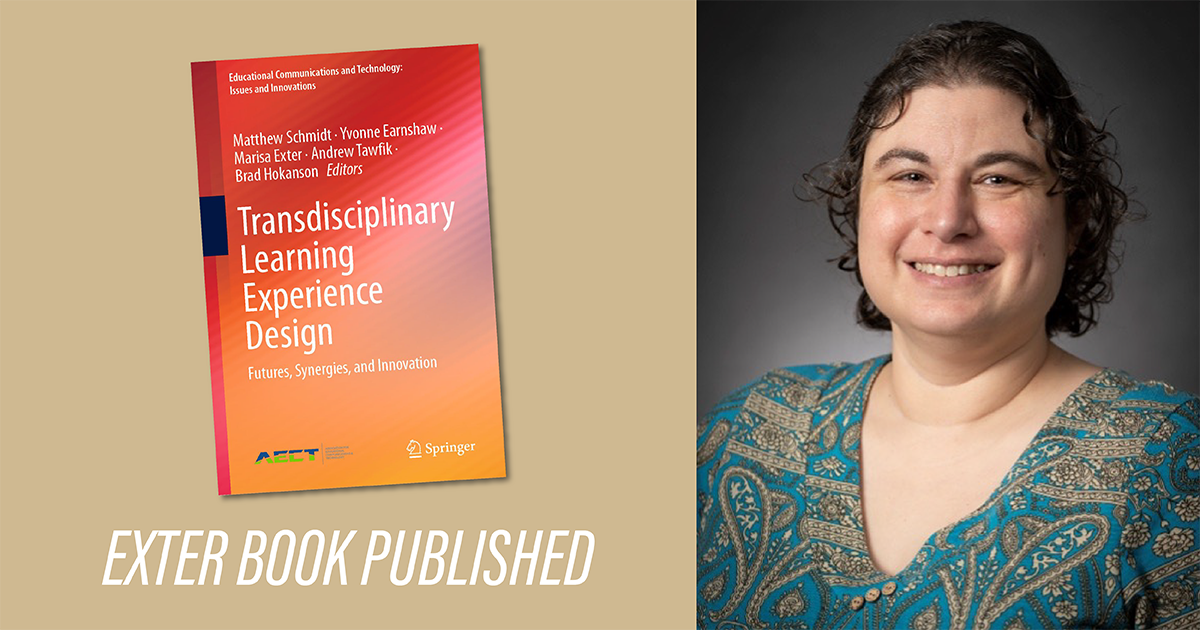Exter’s new book published

Transdisciplinary Learning Experience Design, by Marisa Exter
Springer published a new book co-edited by College of Education faculty member Marisa Exter.
Publication Title
Transdisciplinary Learning Experience Design: Futures, Synergies, and Innovation
Editors
Edited by Matthew Schmidt, Yvonne Earnshaw, Marisa Exter, Andrew Tawfik, and Brad Hokanson
Publisher
Springer
Publication Date
January 2025
About the Book (from the publisher)
This book explores the evolving field of Learning Experience Design (LXD). It provides a multifaceted view of LXD, incorporating perspectives from instructional design, educational technology, and beyond, reflecting the transdisciplinary nature of this design approach. This edited volume responds to the growing recognition of LXD as a distinct area of study and practice within instructional design, especially in the context of rapid technological advancements and changing educational landscapes. The subject of this work is Learning Experience Design, a field integrating multidisciplinary knowledge and techniques to create effective, enjoyable, and meaningful learning experiences. The book delves into participatory and co-design, innovative LXD methods, learning-focused usability research, and theoretical and conceptual advancements in LXD. It features design cases that provide real-world insights and applications, making the content rich and relatable for researchers and practitioners alike.
About the Editor
Marisa Exter is an associate professor of learning design and technology in the Department of Curriculum and Instruction, Purdue University College of Education. She has 15 years of experience in software design, development, and project management, and BS and MS in Computer Science, along with a PhD in Instructional Systems Technology. Her research interests focus on formal and non-formal educational experiences professionals who use design processes to create technology (such as Instructional Design, Computing, and Engineering/Technology), with an aim to improving undergraduate education, especially through interdisciplinary programs and learning experiences.